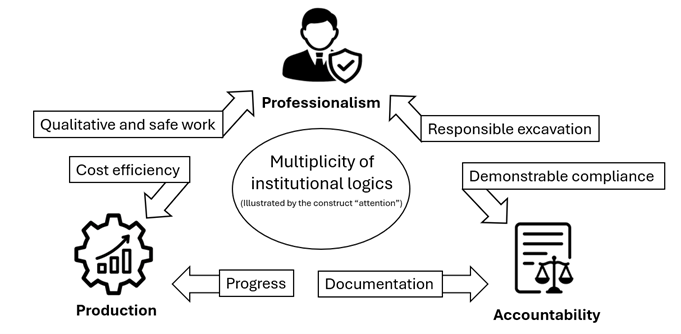Institutional logics influencing compliance with excavation regulations
Léon olde Scholtenhuis
Organisation || The Dutch Authority for Digital Infrastructure (RDI)
Project type || M.Sc. Thesis
Candidate || Steven Keemers
Project duration || March 2025 – September 2025
Download || thesis
Excavation works are essential for maintaining and developing infrastructure but still causes about 50,000 excavation damages annually despite the Wibon, CROW 500, and the Klic system. These damages can have major societal consequences. Many damages occur due to insufficiently following of excavation regulations, suggesting that rule compliance is not rational but shaped by social constructions (e.g. assumptions, values, rules, and beliefs). This qualitative study explored how institutional logics shape compliance with excavation regulations.
Construction Site with damage to buried pipeline - visited during this study (photo by Steven Keemers)
The study identified three logics that shape compliance:
Production logic sees compliance to excavation regulation through an economic or efficiency lens;
Professionalism logic sees compliance as a necessity for responsible excavation that aligns with a professional identity;
Accountability logic has a strong orientation towards demonstrating formal compliance to reduce liability.
Visual representations of competing logics through the construct “attention”.
These logics coexist but can conflict under contextual and external factors like contract conditions, regulatory refinements, unforeseen circumstances, and project conditions. The Production logic conflicts most often with the others logics. These logics help explain why compliance varies in the excavation chain. Recognizing and working with these logics can improve prevention strategies to reduce excavation damages.

